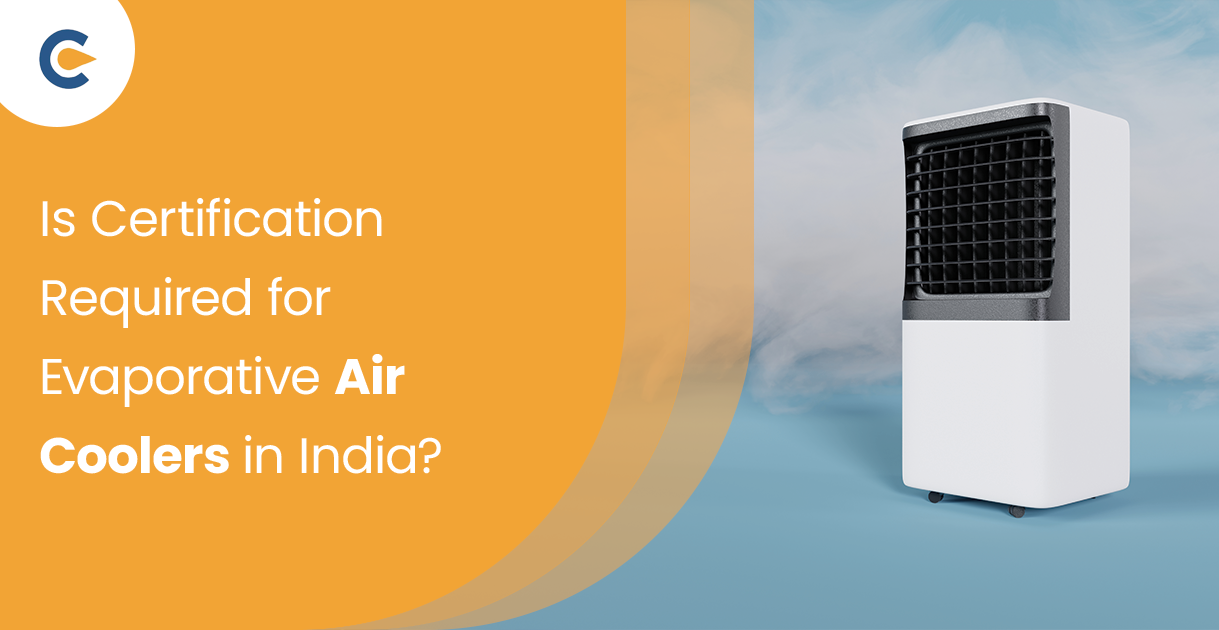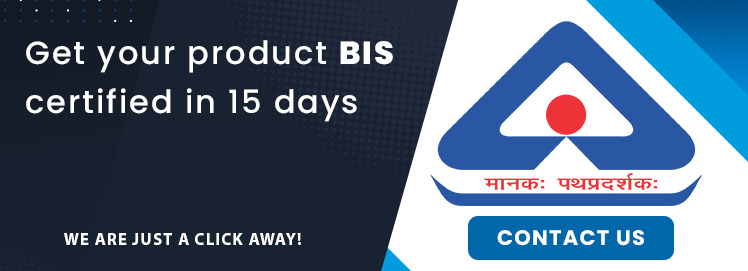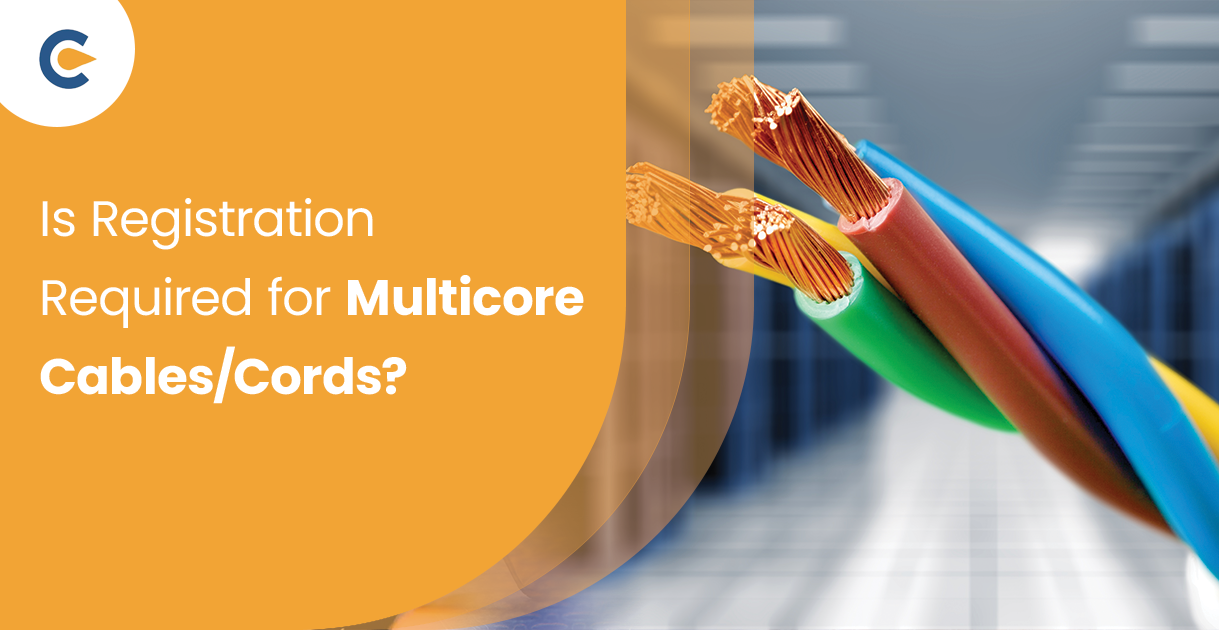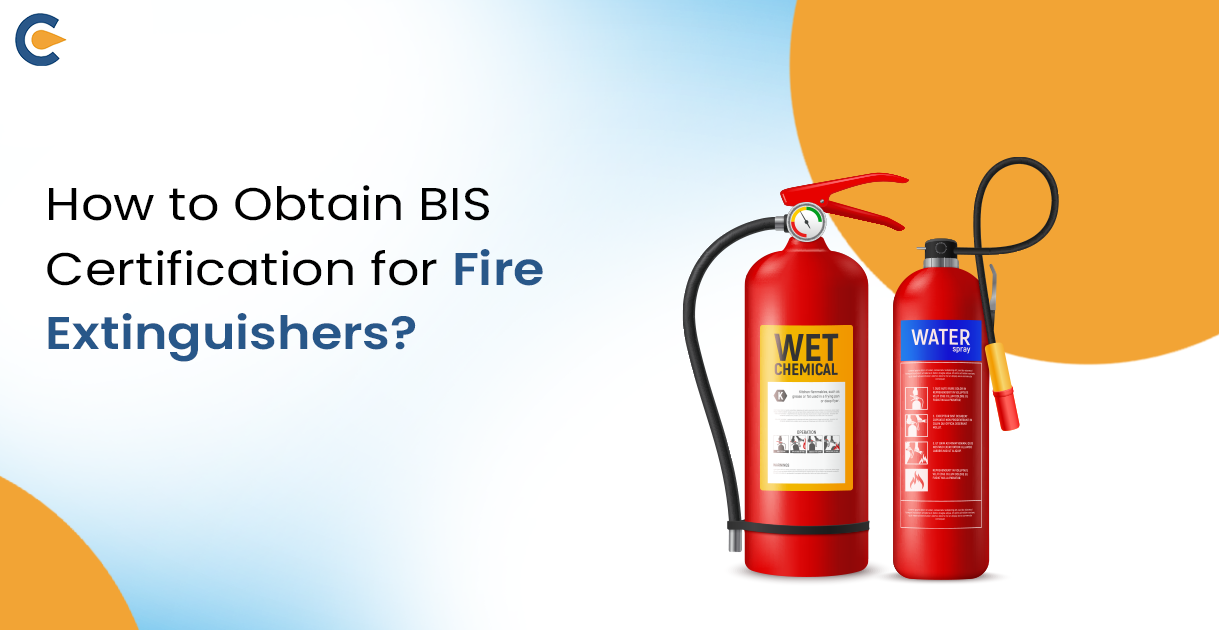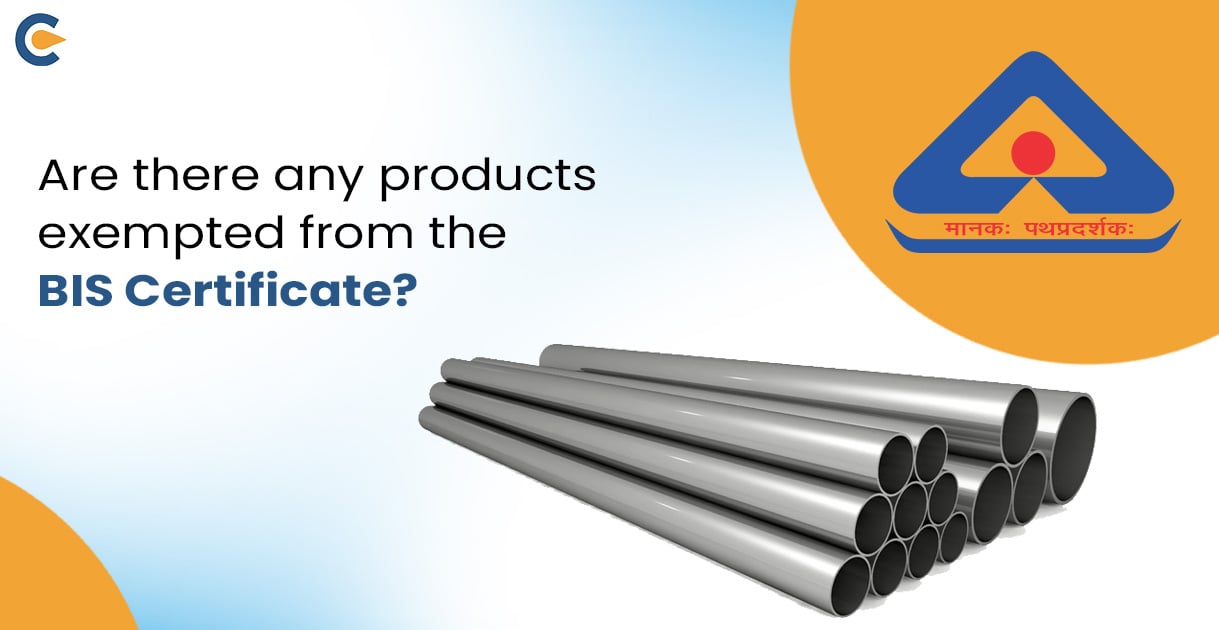India, being a tropical country, has extreme climatic conditions. Especially during summer, it becomes extremely hot, making cooling appliances a necessity rather than a luxury.
There are various types of cooling options available in the market but with time the usage of Evaporative Air Coolers has drastically increased due to various benefits offered by it, for instance, it has been sold at lower cost, it possesses the ability to conserve energy and it has an eco-friendly operation.
In recent times, it has become mandatory to acquire the Bureau of Indian Standards (BIS) Certification for Evaporative Air Coolers. In this blog, we will delve deeper into the reasons behind this regulatory move, its implications for consumers and manufacturers, its impact on India’s cooling industry, and environmental sustainability. We will also guide you step-by-step through the process of acquiring a BIS Certificate for Evaporative Air Coolers.
Advantages of Choosing Evaporative Air Coolers in India
Various advantages of choosing Evaporative Air Coolers over traditional Air Conditioners in India are as follows
- Effective Cooling Solution
- Evaporative Air conditioners are comparatively cheaper than regular air conditioners in terms of both purchase and operating costs.
- Evaporative Air Coolers consume less energy, which helps to efficiently cut down the energy bills for various households and businesses.
- They are also cheaper to maintain since they have simpler operations and have few parts that can break down.
2. Energy Efficiency:
- Evaporative Air Coolers require a small amount of electricity as compared to traditional air conditioning systems making them an energy-efficient option.
- They function by means of natural phenomena, such as water evaporation, which decreases the overall energy footprint.
- Energy conservation significantly reduces the burden on India’s power grid, especially during the peak hot season.
3. Eco-Friendly Operation:
- Evaporative Air Coolers are environmentally friendly, but air conditioners use hazardous refrigerants, which deplete the ozone layer and lead to global warming.
- The natural system is cost-effective and eco-friendly because it uses water and air for evaporation rather than chemical refrigerants.
- Evaporative Air Coolers significantly contribute to maintaining India’s environmental sustainability goals by reducing carbon emissions.
4. Suitability for Indian Climate:
- Evaporative Air Coolers are especially suitable for dry and arid climate zones, which are common in large parts of the territory of India.
- They help in adding moisture into the environment thus effectively providing relief from the dry heat and overall enhancing the quality of air.
- Their performance optimises in hot and dry climates, which is very common in many cities, villages, and places in India.
5. Health Benefits:
- Evaporative Air Coolers successfully eliminate dust, pollutants, pollens, and other airborne contaminants present in the air, ultimately enhancing the quality of indoor air. This is done with the help of the cooling pads built into these devices.
- Evaporative air coolers provide a constant flow of fresh air, meaning that people will not be exposed to contaminated air. Thus, they significantly reduce the likelihood of respiratory problems and promote better health. Therefore, they help in the prevention of various airborne diseases.
Why are certified Evaporative Air Coolers Becoming Mandatory?
BIS Certified Evaporative Air Coolers are becoming mandatory in India for various reasons, which are as follows:
- Ensuring product quality:
- The BIS Certified Evaporative Air Coolers conform to the stringent quality standards set by the BIS, guaranteeing durable and reliable products to the consumers.
- Regular Contamination testing and compliance with BIS standards are the two effective approaches many manufacturers use to maintain uniform product quality.
- Certified products are less likely to have defects or any sort of performance issue, leading to higher customer satisfaction.
2. Enhancing Safety Standards:
- This certification entails passing through various safety testing tests. These tests ensure that the Evaporative Air Coolers are safe for use and do not have the possibility of causing any electrical hazard.
- The general requirements covered under safety standards are fire resistance, electrical insulation, and mechanical properties.
- Consumers can have confidence in coolers with the relevant certificate because they are aware that they pose minimal risk and decrease the occurrence of accidents and possible injuries.
3. Promoting Energy Efficiency:
- This certification has provisions regarding adherence to energy efficiency norms, which boosts the usage and production of energy-efficient devices.
- Energy-efficient coolers efficiently serve both the consumer via reduced power bills and our environment by significantly decreasing the overall demand for energy.
- The goal of using energy-efficient products serves the nation’s purposes towards efficient use of energy.
4. Standardising Performance:
- This certificate process establishes standard performance benchmarks for Evaporative Air Coolers, ensuring that they have a consistent cooling effect regardless of their brands or models.
- The establishment of standardised performance criteria safeguards consumers because it enables them to differentiate between the goods and services prevailing in the market, ultimately helping them make informed decisions when choosing a product.
- The Manufacturers are motivated to exceed or increase the product’s performance standards by striving to work towards the quality of the products.
5. Building Consumer Trust:
- BIS certification of any product provides a stamp of authenticity, assuring customers that the product’s quality and reliability have been verified and tested individually.
- Through this Certification, products are more likely to gain the confidence of the consumer thereby increasing its market acceptance and customer loyalty.
- Customer trust can lead to significant market growth as people tend to purchase the certified product more rather than the non-certified product.
Implications of Evaporative Air Coolers for Manufacturers and Consumers
Various Implications of Evaporative Air Coolers for Manufacturers and Consumers are as follows:
➢ Implication for the Manufacturers:
- Compliance with Standards:
Pertaining to the BIS standard, the Manufacturers of Evaporative Air Coolers have to conform to the standards set by the BIS in order to be legal to sell their products in the Indian market. It requires a rigorous testing and certification process which can be difficult to meet by the Small and Medium-sized Enterprises (SMEs).
However, compliance with the standards set by the BIS ensures that high-quality products reach the consumers, hence enhancing the reputation of their brands and enhancing customer satisfaction.
2. Encouraging Innovation:
The BIS registration is compulsory as it drives the manufacturers to enhance their products with a view of meeting the required standards. It creates a potential for introducing air coolers that consume less energy, are durable in nature and easy to use by the consumers. In addition, manufacturers who invest in the R&D to acquire the certification can enjoy a competitive edge in the market.
3. Market Access and Expansion:
Acquiring the certification opens up the gate to many new market opportunities for manufacturers in both the domestic and the international markets. This certification is reputable and resonates with quality and safety, meaning that the products that bear the certification are more appealing to consumers and potential business partners. This recognition can help in the market expansion enhancing the possibility of export for the Indian manufacturers.
➢ Implications for the Consumers:
- Assurance of Quality and Safety:
The certification of BIS offers a guarantee of the quality and safety of the Evaporative Air Coolers to its consumers. Certified Air Coolers have undergone testing for their performance durability and safety in order to meet the required standards. This will help consumers in making informed decisions and act as a shield by protecting them from the unsafe products.
2. Enhanced Energy Savings:
BIS certified Evaporative Air Coolers have been designed in a way that it will use less energy, significantly reducing the electricity bills for their consumers. The costs of electricity are constantly increasing in India; therefore, energy conservation technologies have proven useful and highly desirable.
Consumers will have the privilege to enjoy effective cooling without worrying about the excess consumption of energy, ultimately contributing to their long-term savings.
3. Environmental Benefits:
Another advantage of consumers making the aforesaid choices is they ensure that their environment is sustainable since they are using BIS-certified Evaporative Air Coolers. Energy-efficient coolers use less electricity, thus leading to reduced emissions of greenhouse gas and a smaller carbon footprint.
Evaporative Air Cooling is more environmentally friendly in comparison with traditional air conditioners.
Broader Impacts on the India’s Cooling Industry
The broader impact on India’s cooling industry are as follows:
- Enhancing Industry Standards:
The mandatory BIS certification helps in elevating the general cooling industry in India. This motivates all manufacturers to aim towards high standards of quality, which yields a competitive and innovative market. The improvement in these standards serves not only the consumers but also the industries, helping them in sustainable growth and development.
2. Reducing Energy Demand:
The cooling sector is found to be a significant contributor to energy in India. Thus, by encouraging manufacturers to produce only BIS-certified Evaporative Air Coolers, the government will be able to deter this demand by encouraging energy-efficient appliances. This significant reduction in the demand for energy can help ease the load on the national power grid, increase energy security, and decrease the need for new power generation capacity.
3. Supporting Government Initiatives:
The compulsory certification corresponds to several governmental programs aimed at promoting energy efficiency and sustainability. The Bureau of Energy Efficiency (BEE) and National Action Plan on Climate Change (NAPCC) are a few of the prominent and comprehensive programs under which energy-efficient technologies, particularly efficient home appliances, are promoted for controlling energy use and saving the climate.
This certification assists these undertakings in this respect because it validates that the Evaporative Air Coolers sold are energy-efficient.
Guide to Obtaining a License for Evaporative Air Coolers in India
The procedure to get a BIS license for Evaporative Air Coolers includes a series of clearly defined BIS regulations to check the conformity of the product. The process is designed in such a way that it ensures only high-quality and safe products are delivered to the market. Here’s a step-by-step guide on how to obtain a BIS License for Evaporative Air Coolers:
- Application Submission:
- Filling out the Application Form: The process starts with submitting the application form, which can be done online through the BIS portal. This form should contain detailed information about the manufacturer, the product, and the manufacturing process.
- Submission of Documents: In addition to the application form, applicants must also submit copies of various essential documents, including the company’s registration certificate, factory license, and details of the factory manufacturing unit.
- Application Fee: An application fee prescribed by BIS must be paid. This fee covers the initial processing and the administrative costs.
2. Product Testing:
- Selection of BIS-Approved Laboratory: The BIS will approve a laboratory to carry out the test for the product. The list of approved laboratories is available on the BIS official website.
- Submission of Samples: Manufacturers of evaporative air coolers are obliged to submit a sample of their product to the selected laboratory for testing. The requirements as to the number of samples collected and the specific tests to be performed are in accordance with the standard set by the BIS.
- Testing Parameters: Various product parameters, namely electrical safety, performance efficiency, material quality, and durability, are being tested. The tests help ensure that the final product complies with all the standards set by BIS.
3. Inspection and Audit:
- Factory Inspection: BIS officials regularly inspect the manufacturing plant. This inspection confirms the manufacturing process, the measures being taken to ensure quality control, and the measures being taken to follow safety standards.
- Audit of Production Process: The audit includes a thorough review of the production process, from the raw materials procured to the manufacturing of the final product. This review has been conducted to study whether each step of the manufacturing process thoroughly complies with the BIS-set standard.
4. Grant of License:
- Evaluation of Test Reports: After the products are tested and the factories are inspected, BIS assesses the test reports and the inspection results. If the product meets all the requirements of the BIS standard, then it can proceed with the licensing process.
- License Issuance: After the evaluation, the license is issued by the BIS to the manufacturer of the product. The license issued contains a unique BIS mark and license number, which shall be displayed on the product.
- Validity and Renewal: The BIS license is issued for a specific period of time, after which it demands renewal. During the renewal process, the product is re-evaluated and re-tested to ensure that it continues to comply with the BIS standards.
5. Post-License Compliance:
- Marking Requirements: Once the license is granted to the manufacturer, he needs to ensure that the BIS mark and the license number are displayed on the product and the packaging, as the BIS mark is a symbol of the product’s quality and safety assurance.
- Surveillance and Monitoring: Licensed products also undergo surveillance and are monitored by BIS from time to time to ensure that they continue to conform to the standards. This could comprise testing of samples from the markets once in a while and factory inspection.
- Record Keeping: Manufacturers are bound to keep records that include details of the products, their quality assurance, and testing. The BIS may review these records during surveillance activities.
6. Handling Non-Compliance:
- Non-Compliance Notices: If a product is found non-compliant during surveillance or during the period of market testing, BIS issues a notice of non-compliance to the manufacturer.
- Corrective Actions: After receiving the notice, Manufacturers must take the appropriate actions to rectify the non-compliance issues and provide a report to BIS. Failure to comply can result in penalties, suspension, or even cancellation of the BIS license.
- Appeals and Re-Testing: If a problem arises, the manufacturer can appeal the decision and request a re-evaluation of the product.
Conclusion
The mandatory BIS certification for Evaporative Air Coolers in India ensures enhanced product quality, safety, and energy efficiency, benefiting both consumers and manufacturers. This regulatory move fosters consumer trust, promotes industry standards, and supports environmental sustainability.
Manufacturers are encouraged to innovate and expand their market reach, while consumers enjoy reliable, cost-effective, and eco-friendly cooling solutions. Overall, BIS certification plays a pivotal role in advancing India’s cooling industry, aligning with national energy conservation and climate action goals.
Frequently Asked Questions
Why BIS certification is needed for Evaporative Air Coolers?
This certification has become mandatory to ensure product quality, enhance safety standards, promote energy efficiency, standardise performance, and build consumer trust.
What are the advantages of Evaporative Air Coolers in India?
The main advantages include being a cost-effective cooling solution, energy efficiency, eco-friendly operation, suitability for the Indian climate, and health benefits.
How does BIS certification impact manufacturers?
This certification requires manufacturers to comply with standards, encourages innovation, and opens up new domestic and international market opportunities.
What are the benefits of certified Evaporative Air Coolers for consumers?
Consumers benefit from assured quality and safety, enhanced energy savings, and a reduced carbon footprint, which in turn benefits the environment.
How does mandatory certification affect India's cooling industry?
It enhances industry standards, reduces energy demand, and supports government initiatives aimed at promoting energy efficiency and sustainability.
How long is a BIS license valid for Evaporative Air Coolers?
The BIS license is issued for a specific period of time, after which it requires renewal. The renewal process involves re-evaluation and re-testing of the product.
Read our article: BIS Registration For Jewellers




